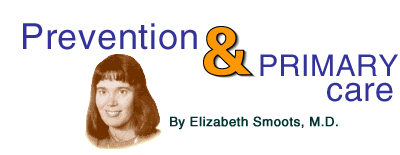
"Caw! Caw!" crowed Ben, looking out his bedroom window. Imitating bird and animal sounds before he learned "Dada" or "Mama" was the earliest sign that Ben might have a problem.
As Ben developed, his symptoms became more serious. He would spend all day playing with animal or dinosaur figures, or reading about them by himself in his room. Sometimes he played side-by-side with other children, but he rarely made eye contact and seemed unaware of their thoughts and needs. Eventually, Ben was diagnosed with Asperger's syndrome, one of several disorders lumped under the general term "autism."
Over half a million people in the United States today have some form of autism. Afflicting as many as 1 in 500 children, autism strikes boys four times more often than girls. Children with the condition seem isolated in a world of their own and often have lifelong problems communicating or relating to others. Autism is one of the most common developmental disabilities, yet most of the public -- including health professionals -- know very little about this baffling brain disorder.
What causes autism?
Studies suggest that an abnormal slowing down of brain development before birth may cause autism. This could be triggered by a viral infection, dysfunction of the immune system, or inheritance of several genes that have been linked to the condition. Excessive levels of the brain chemical serotonin may also lead to autistic behavior. While the definitive cause of autism remains unknown, we do know that parenting practices do not cause autism.
Signs of autism
The range of symptoms and abilities in autism varies widely, from mental retardation to extraordinary talent; some children with autism may appear nearly normal. According to the American Psychiatric Association, a diagnosis of autism -- also called pervasive developmental disorder -- is based on the presence of several specific behaviors:
Social interaction
Impaired use of body language such as eye contact, facial expressions, postures, gestures, and response to affection or touching
Failure to develop relationships with same-age children
Inability to share enjoyment, interests, or achievements with others
Lack of participation in social or emotional interchange
Communication
Delay in, or lack of, development of spoken language
Markedly impaired ability to start or sustain a conversation with other people
Repetitive use of language or development of own personal language
Lack of imaginative or social play
Behavior
Excessive preoccupation with one or a few interests or activities
Difficulty with even small changes in the daily routine or environment
Use of repetitive movements like flapping hands or fingers, rocking, and twirling
Obsession with parts of objects
If you are concerned that your child may show signs of autism, contact your health care provider for an evaluation. All children whose speech development is delayed should also get a hearing test. Although there is no cure for autism, early diagnosis and treatment can help maximize your child's brain development and potential for the future. A child with autism need not stand alone.
Related links:
Outside link: Autism Society of America
Outside link: Information on autism from the National Institute of Mental Health
Elizabeth Smoots, M.D., F.A.A.F.P., is a board-certified family physician in Seattle, Washington. A fellow of the American Academy of Family Physicians, Dr. Smoots writes about prevention and primary care medicine.

